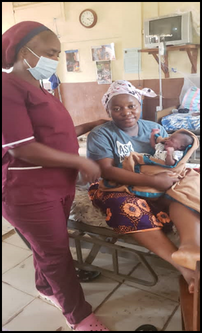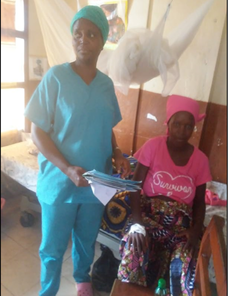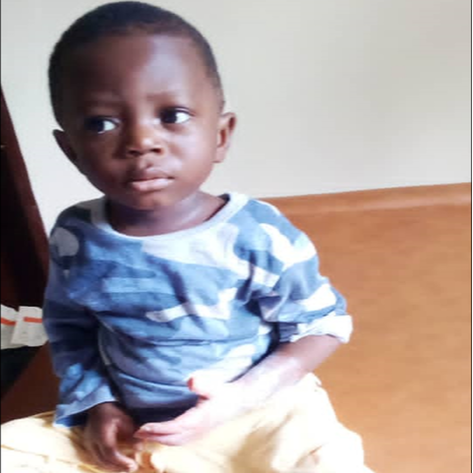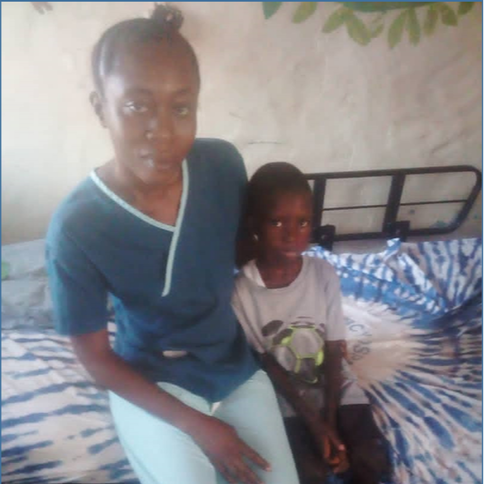 Musu was at term and in beginning labor when she came to Mercy Hospital, but due to her tiny stature, her pelvic structure was too narrow for her healthy baby girl to be delivered. An emergency caesarean section was ordered, and the baby safely made her entrance into the world. Mother and baby received post-operative care and were discharged in good health. "Thank you for being there when I needed help!" she told the surgical team. "Prolonged labor can occur when there is disparity between the fetal head and the pelvis," Dr. Aruna Stevens, who performed the surgery, explained. "The passage might be inadequate, or the passenger's head might be too big." We're glad Musu's baby had a safe journey into life!
0 Comments
 A transverse fetal position is rare, occurring in approximately one out of 300 deliveries. For women without access to a hospital delivery, a baby in the transverse position (lying sideways, instead of head down) is likely to be stillborn. 26-year-old Kadiatu presented at the hospital in advanced labor, and an ultrasound revealed the baby was lying transverse, making a normal vaginal delivery impossible. The Mercy surgical staff performed an emergency caesarean section, delivering a baby girl, who was healthy but required resuscitation. "The condition is most common with multiparous patients (multiple births) because of the lax uterus," Dr. Aruna Stevens explained. "The fetus lies in any position that she feels is comfortable because of the large space available, which sometimes causes malpresentation." Kadiatu and her grateful husband credit Dr. Stevens and his team for saving their baby's life. Severe burns are a common injury in Sierra Leone, where most people cook over an open fire. A young mother rushed her toddler, Chris, to the government hospital after the child sustained second degree burns on his forearm and thigh from a bucket of boiling water. When the wound became infected, she brought Chris to Mercy Hospital, where his wound was cleaned and treated under anesthesia. He was released in good condition, and his mother appreciated the surgical team's fast intervention. Amadu, aged 7, was brought to Mercy Hospital by his mother after suffering from acute abdominal pain and other symptoms for a week. An ultrasound scan revealed a severe gastric perforation, requiring emergency surgery to repair the wound and apply an omental patch. After a brief recovery in the hospital, Amadu was released in good health. His parents were deeply grateful to the surgical team for saving their son's life.
Gastric perforation is very common in Sierra Leone, and is generally the result of an ulcer which may be caused by a bacterial infection or chronic digestion problems. |
Follow us on social media
Archive
July 2024
Click the button to read heartfelt tributes to a beloved Bishop, co- founder of our mission!
Post
|
Helping Children Worldwide is a 501 (c) 3 nonprofit organization | 703-793-9521 | [email protected]
©2017 - 2021 Helping Children Worldwide
All donations in the United States are tax-deductible in full or part. | Donor and Privacy Policy
©2017 - 2021 Helping Children Worldwide
All donations in the United States are tax-deductible in full or part. | Donor and Privacy Policy








